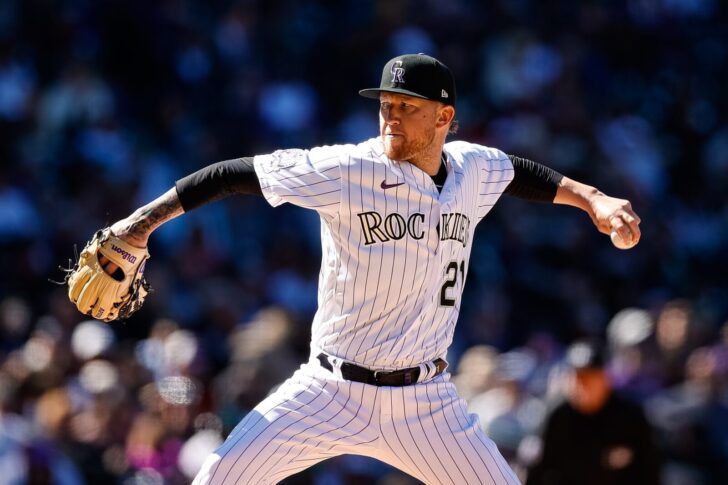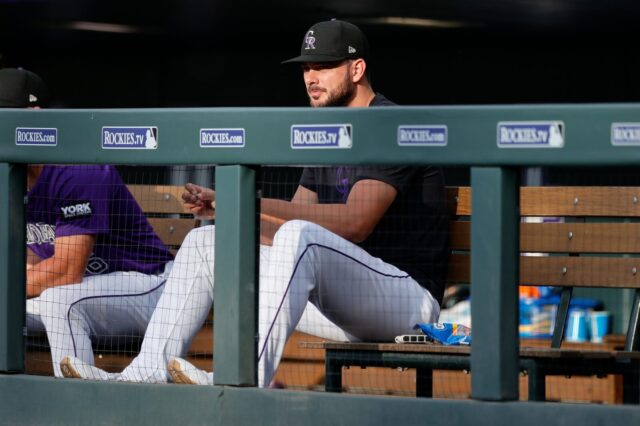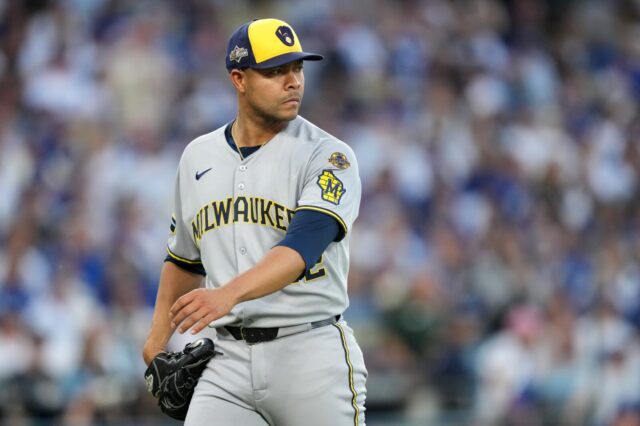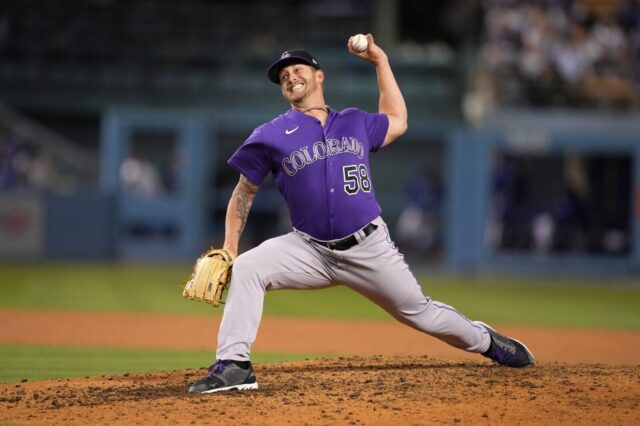Baseball belongs in Colorado.
Our state has a long and storied love affair with the game that stretches back to the days of Satchel Paige and barnstorming. It runs through memories of the Denver Bears and the Zephyrs and a myriad minor and semi-professional teams that make up our unique history.
I hail from Grand Junction, Colorado, where JUCO (the Junior College World Series) is the biggest event on the calendar, a grand celebration that marks the end of the school year and the beginning of summer. And the new season. Baseball is in our blood.
According to Baseball Almanac (and assuming I counted correctly) there have been 101 Colorado natives who have managed to play in at least one MLB game. Two of them, Roy Halladay and Rich “Goose” Gossage, made it all the way to Cooperstown from here. Shoutouts to Jimmy Serrano (who pitched 32.2 innings for Kansas City) and Brian Matusz (who pitched 528.2 innings for Baltimore and Chicago) for being the only GJ representation.
It has always been a challenge for the kids from this state who don’t have access to year-round baseball with our harsh winters. Most people don’t have the option to move to a warmer climate to chase their dreams as a teenager and so most of the Colorado-born MLB players were multi-sport athletes in their youth and that tends to lead to less of them ultimately “making” it.
Because so few have managed to even get a cup of coffee at the highest level in the land, it makes some sense that there hasn’t really been a history of the Rockies strongly pursuing these players outside of the occasional Mark Knudson or Scott Elarton.
But right now, the Rockies are carrying four natives on their MLB roster in Kyle Freeland, Pierce Johnson, Ty Blach, and Lucas Gilbreath and have another in their system with Case Williams.
And in their Opening Day win against the Washington Nationals, they did something never before done in MLB. They had a Colorado born player both start and finish the game.
“That was really cool,” said manager Bud Black in the aftermath.
Kyle Freeland and I both had the same thought, though. Nothing against the Lion of Panama Justin Lawrence, but “It woulda been really cool if it was me, then Gilbreath bridges it, then Pierce comes in. Hopefully when Lucas is back, we can do that. An all Colorado game.”
Can’t wait.
Clearly, the Rockies have identified a potential advantage here. Note that all of these players are pitchers as well. “I think it’s a formula that [Rockies GM Bill Schmidt] is working with and Buddy is on board with bringing Colorado pitchers back to Colorado and seeing if it can work. And so far, it has. Hopefully we can keep it going,” Freeland says.
The gravity of the moment donned on Johnson after he was done completing his first save in front of his literal hometown crowd. “Afterwards it really hit home for me,” he says. “You didn’t see a ton of Colorado kids playing for this organization, at least not when I was growing up, and especially to do that on Opening Day? It’s storybook writing, you know? Couldn’t have drawn it up better.”
The altitude is Johnson’s ally. He was born in it, molded by it.
“When you learn how to pitch here, grow up in it, and then you go to other environments there is an adjustment but it’s an easier adjustment,” he says. “On the road, the ball moves more, it kinda dances with you.”
Johnson also sees a potential advantage on the flipside of the lack of yearlong baseball from when he was a kid.
“What plays in my favor is I live here in the offseason,” he says, “So when I’m working on it and getting my arm ready to go and then I show up in Arizona and it’s moving a little more, then we go to California, and it moves even more. It gives you confidence to say if I can spin it at altitude, I can spin it anywhere.”
Where a lot of guys come here and try to change themselves, Johnson has had a working strategy for years: “When I was pitching in Colorado Springs, Rod Nichols told me ‘you’re not gonna change your pitches, you’re just gonna change your sights.’ And that really resonated with me. There was an adjustment period but because I train here in the offseason, I just feel prepared. You’ve gotta make those adjustments on your own. And look, there’s gonna be days that I get hit and days that I don’t. You just have to keep a consistent mindset.”
So far, he has been excellent stepping in for Daniel Bard as the team’s closer for now. Unfortunately, on the flip side, Lucas Gilbreath is out with an elbow injury but still basking in this rare moment.
“Kyle and Pierce are awesome dudes and awesome pitchers,” he says. “Like you said, it would have been really nice to bridge that, maybe next year we will have that opportunity. But man, Kyle was dominant in that outing and so was Pierce. To watch that was poetic.”
To a man, much like yours truly, they also all take a certain pride in watching the other Colorado kids out there do their thing. As long as they aren’t playing the Rockies, of course.
“I love watching [Kevin] Gausman,” Freeland says. “That’s a guy who got into the league really quick, had some success, struggled and started bouncing around and then found his footing and revamped his career and became a $100 million pitcher and one of the best in the game. It’s really cool to see Colorado guys succeed like that.”
Gilbreath agrees, adding, “It’s been cool to find new guys every year. Like meeting [Mark] Melancon or last year meeting Steven Wilson with the Padres.”
One has to wonder if we are at the beginning of a kind of revolution for Colorado baseball, especially when it comes to those players ultimately donning the purple pinstripes of the local ballclub.
“I think it’s great,” Gilbreath says of the Rockies choosing to target these guys more actively. “We’ve talked about it among us. This was always our normal, right? Growing up our whole lives until we were 18, this is your normal. You throw here. The ball moves like this. The ball flies like this. You don’t think anything of it. There is a little bit of a mental advantage and there is a bit of a physical advantage. We’re adapted to live here. I think the more guys we can get from here and the more guys that can understand it? I think it’s huge.”
In addition to everything else he has done for the franchise, it may also end up that Freeland was the first to prove that this idea could not only work, but potentially excel.
Since we are talking about the legacy of baseball in this state, I ask if he thinks about his own place in that story. “When I get towards the end of my career, I’ll start thinking about that a little bit more,” he replies.
In the meantime, they’ve got enough members now to officially form a supergroup. The only thing missing is a name for them. The Colorado Crew?
“We’ll come up with something,” Gilbreath says. “That’s a good idea. We need a group chat. We’ll come up with a name.”



